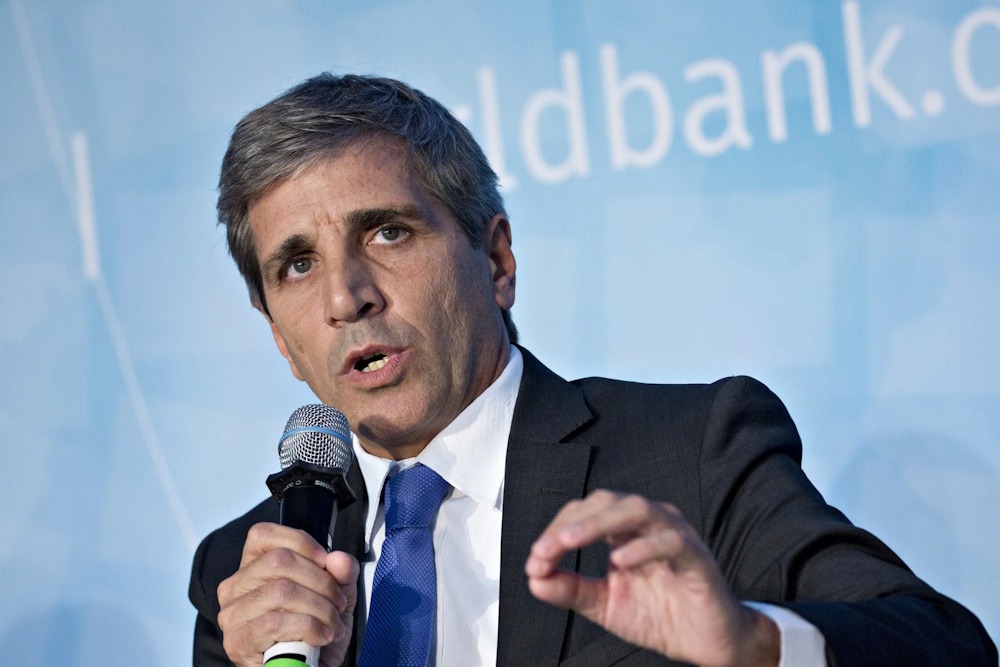Argentine Economy Minister Luis Caputo defended the implementation of a currency band scheme for the peso-dollar exchange rate, arguing against a free-floating system by characterizing the Peronist opposition as “communism.” The government is considering a labor reform designed to ease the process of layoffs; however, modifications to the tax system will be postponed. “We cannot expect to float when our political alternative continues to be communism. Excuse me, but that is not serious,” Caputo stated on Wednesday . Caputo addressed detractors who argue that the peso is artificially overvalued and that the exchange rate ought to be allowed to float without restrictions, with his explanation indicating that the rate must be managed in light of concerns regarding the resurgence of Kirchnerism, the primary faction of the opposition that the minister characterizes as having “communist” inclinations.
Caputo asserts that the current scheme provides individuals with “predictability and peace of mind,” in contrast to a free-floating system that could result in a significant decline of the peso and subsequent devaluation. In his theory, Argentine history illustrates that political turbulence invariably influences the economy; thus, the mere prospect of a Kirchnerist resurgence in the October midterms was sufficient to send markets into disarray. Since April, the dollar has been permitted to fluctuate within the range of AR$931.75 to AR$1,501.5, with the Central Bank authorized to sell dollars solely for the purpose of managing the exchange rate when it approaches the upper threshold. You may find it worthwhile to explore: Who are the Argentine ‘far left’ that Donald Trump referred to? Caputo provided no rationale for his characterization of the opposition as “communist.”
“If we wish to be regarded with seriousness on the global stage, it is imperative that we begin to present logical political alternatives,” Caputo stated. “There is no issue with the existence of a centrist or left-wing alternative; however, it is essential that we all remain on the same highway, as is customary in any standard nation.” The minister maintained that the peso is not overvalued, asserting that exports are achieving “record” figures, which he argued is inconsistent with a currency that is overvalued. “The [exchange rate] bands are well calibrated,” he emphasized, adding that a free-floating system is a “luxury” Argentina does “not yet deserve.” Caputo indicated that three government offices are collaborating on the labor reform that President Milei has been resolute in pursuing since assuming office, with the ministry’s proposal comprising three key points, one of which aims to facilitate the process by which companies manage layoffs.
The primary mechanism would involve establishing a compulsory severance fund, allowing employers to draw from it rather than disbursing the legally mandated amount upfront. “This would facilitate the process for companies managing layoffs, particularly regarding expenses and legal matters. We believe this will really help formalize the economy,” he added. The ministry is currently examining ways to “significantly” enhance income tax deductions for individuals, a move that he asserted will further promote formalization. Caputo’s team is evaluating “a new incentive scheme for new employment,” though additional details remain undisclosed. Regarding the tax reform, he stated that the ministry aims to abolish “the most distortive taxes,” which, according to him, render the country comparatively uncompetitive. Currently, he stated that they “raise a lot of revenue” and that the government could not afford to abolish them. “These are all things we cannot afford to do today, because in the short term, it would mean breaking the fiscal anchor,” he stated.

